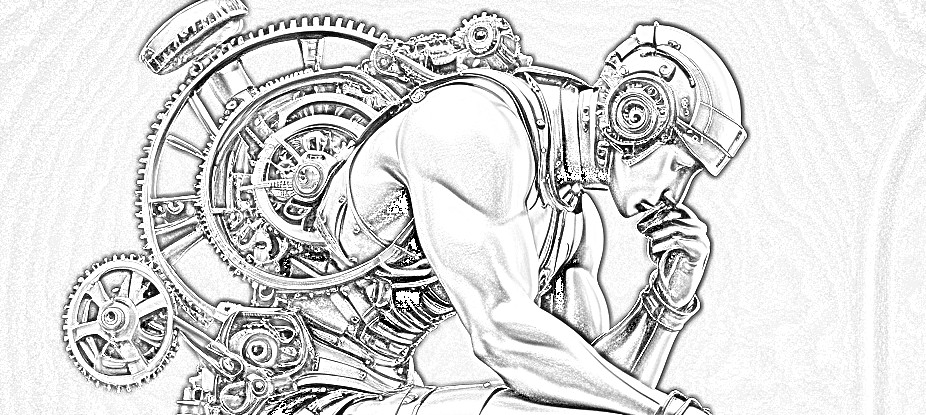
I just came across this word in a tweet. This guy (some David Shapiro, who looks like a tech buff or something) was sharing some thoughts about AI, and the supposed imminent arrival of so-called AGI (or was it ASI? I mix the acronyms; however, ASI is definitely bound to come —a few years?—after AGI does). There he states more or less that several companies are working in this field, but that for some reason (like AI proliferating by its own means, if I get this right) all of them will arrive to ASI (ASI it was!) at the same time, and, as a result of that, there will be no moat.
Although moat rang a bell, I was in the dark as to its meaning, so I had to look for it on the net. As you know, 'moat' is the water-filled trench they dug around medieval castles to add a further obstacle to enemy hordes attacking them—this is what I found first. However, there was more to it, since the particular case that had caught my eye was obviously an image or metaphor, of the kind the financial world is very fond of. Following this hunch, I kept searching on and finally learned the origin of the expression: it seems Warren Buffett first used the word to refer to the comparative advantages a firm keeps building up in order to prevent competitors to catch up with them. This sense of the word would later generalize itself in the financial jargon and probably has already made its way into the language of everyday life.
It's funny when you realize our modern languages are indebted to people like Luther, Dante, Shakespeare, Cervantes, etc. for their coining new terms we still use today--and how nowadays this same job seems mainly to be in the hands of publicists, reporters, and financial gurus.
Thanks for this post. Reading this, I can a "moat" can be a safeguard to protect intellectual property. However, copyright lawyers for the big companies working on this are probably trying to to "put a moat around" their intellectual property. The field is rapidly changing, isn't it?
Muchas gracias por la publicación, @eugen_blick . Más allá de los términos y de la logística de las propiedades intelectuales, algún día nos tendrán que decir los motores de "Inteligencia Artificial" de dónde y cómo adquieren la información que seguramente no les pertenece...
No va a pasar... Me parece que la propiedad intelectual va camino a ser cosa del pasado. Acaso los multibillonarios no se apropiaron y lucran con desarrollos técnicos en su momento financiados por el Estado? Después hacen tramoyas sin cuento para no pagar impuestos y se cierra el círculo. Ahora sin ir más lejos cogobiernan. Es como la historia del Golem